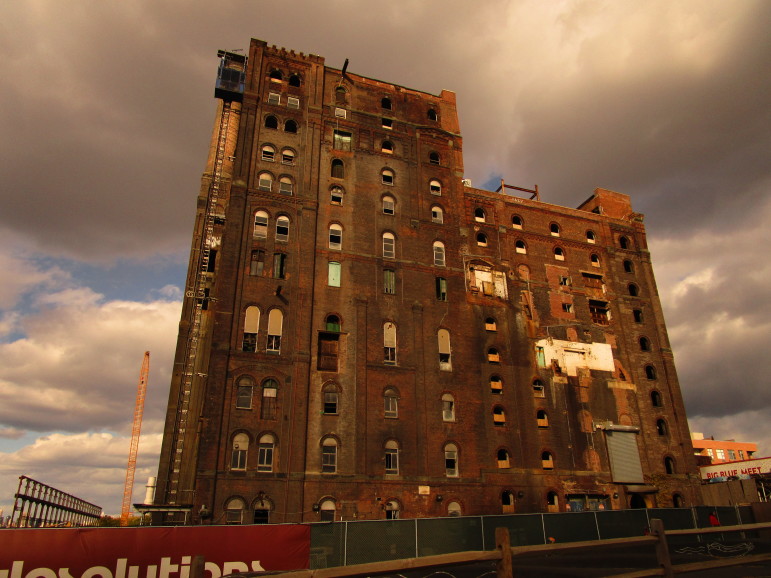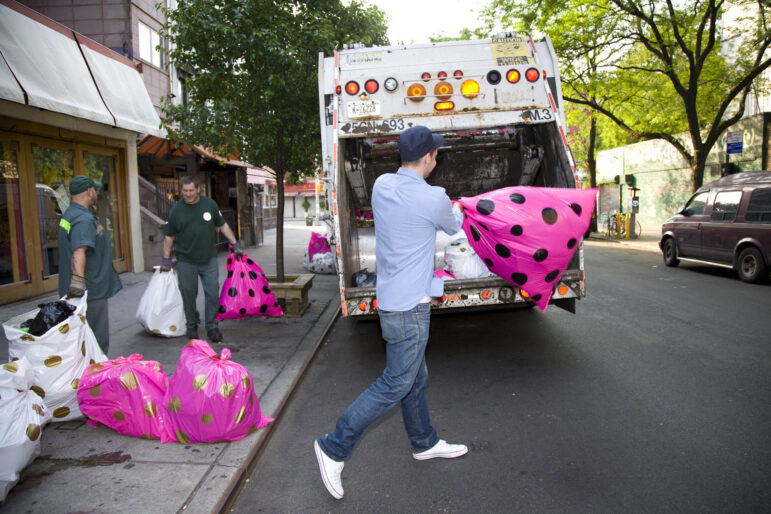
Nycleed
Exterior of the old Domino Sugar Factory as seen last October. While manufacturing in the County of Kings will never regain its old size or shape, it has seen something of a rebound.
If the first decade of this century saw a Brooklyn boom, no one told the borough’s manufacturing sector, which was cut nearly in half. The past few years have seen a resurgence, one that Mayor de Blasio is trying to stoke citywide. Last week the mayor announced the formation of a new fund to help develop industrial real estate and the awarding of grants to six promising new manufacturing companies, part of a city effort to add 20,000 jobs to the city’s 530,000-job industrial sector by 2020.
But manufacturing is just a part of that sector, and today’s factories are smaller and require more skills than those of the past. The biggest challenge to manufacturing in the city is the cost of space, and some have criticized the de Blasio administration’s proposed rezoning in East New York for redesignating manufacturing land to residential or mixed-use. And with the effort to save manufacturing in New York more than half a century old, some wonder if that sector deserves all the resources and concern it garners.
Leah Archibald, executive director of Evergreen Exchange and manager of two of the city’s Industrial Business Zones, the Workforce Development Institute’s Lisa Futterman and Jonathan Bowles of the Center for an Urban Future joined me on BkLive (the daily news show from BRIC-TV) to discuss those issues and more on Wednesday. Give it a look:










4 thoughts on “Can De Blasio Save Brooklyn Manufacturing?”
Juniors makes their cheesecake in NJ now, Streit Matzoh closed down, Sweet n Low closing and NYCEDC, ESDC, Mayors office ignore for years these businesses until its too late. How did NOBODY at NYCEDC or ESDC try and help the matzoh factory find another location in the State of NY?
Real manufacturing is dead in New York and the entire Northeast for that matter. The southern states have huge manufacturing plants like Hyundai’s massive $1B facility in Montgomery, Alabama. That’s a real plant making real products not nik-naks for hipsters. Huge facility with interstate highway and CSX rail freight connections to all of North America.
I had no idea the city held 530,000 industrial jobs. not even by half. I suppose it depends on how “industrial” is defined.
Btw, what many businesses want in the city is cutting red tape to gets things started and done quickly and efficiently so that they can mainly focus on their business. that’s actually their biggest bitch.